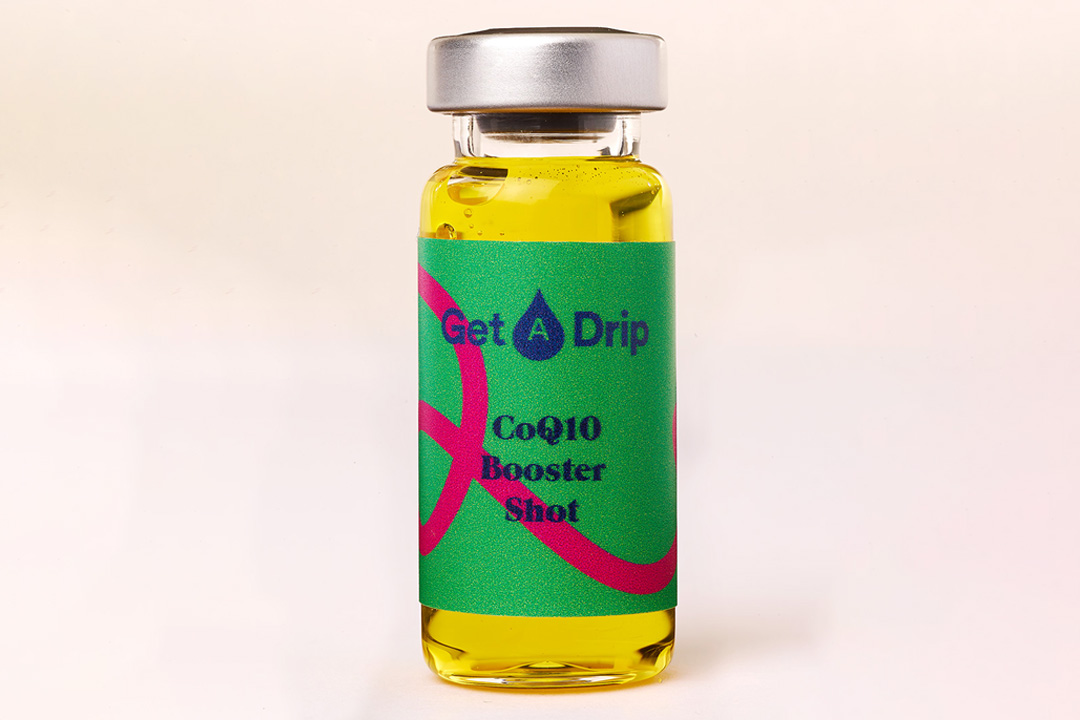From £50
CoQ10 Recovery
Coenzyme Q10 (CoQ10) – also known as ubiquinone – is a naturally occurring compound that serves a vital role in cellular energy production. It is found in every cell of the body with especially high levels in the heart, muscles and other tissues with high energy requirements. Additionally, CoQ10 is a powerful, fat-soluble antioxidant. Antioxidants help to protect our DNA and tissues from damage caused.by oxidative stress and environmental toxins.
Pricing:
- 25mg – £50
- 50mg – £70
- 75mg – £80
- 100mg – £85


Key Ingredients
- CoQ10 (25 – 100mg) £40 – £100
CoQ10 Additional Information
- Poor muscle tone
- Involuntary muscle contractions
- Progressive muscle stiffness
*Get A Drip reserve the right to change the ingredients, prices and products of all our services on a daily basis. Our products, ingredients and prices are subject to change at the discretion of Get A Drip up until payment for your Drip or Booster. All Vitamin Drips (IV) & Vitamin Injections (IM) require a free medical consultation prior to treatment.
Frequently Asked Questions
How can I ease a migraine?
There are a number of methods you can try to help ease your migraine. The most immediate response that may help you feel better during a migraine attack is to lie down in a darkened room. Some find that having something to eat helps, while others start to feel better once they have been sick (if they have been feeling nauseous).
A growing body of research suggests that some Vitamins and minerals can aid in migraine prevention, such as Vitamin B2, Magnesium, Vitamin D, and CoQ10 (short for Coenzyme Q10).
Over-the-counter (OTC) medications such as paracetamol and ibuprofen can help relieve the pain, although taking these too frequently may cause medication overuse headaches, making you feel worse. If OTC painkillers do not help ease your symptoms, your GP can prescribe you other treatments including triptans and anti-sickness medication.